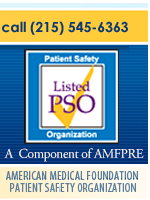Peer Review of Radiology Services and
Peer Review of Radiologist Performance
AMF has provided evaluation of Radiology Services since 1987 bringing prominent expert oversight for thousands of imaging examinations. Our in-depth analysis of the problems involve a tailored review to determine which quality indicators may be of concern and make specific recommendations for improvement. We can address issues involving a single patient care incident, a specific procedure, the activities of an entire practice, or a complete department review. Our methodology for the evaluation of diagnostic imaging and interventional services includes not only review of diagnostic interpretation discrepancies, but adequacy of imaging protocols, technique, and communication of findings. With a team of experienced and nationally recognized experts in all imaging subspecialty areas we provide a flexible approach to meet the needs of our clients.
Our review team includes nationally recognized experts for peer review in:
- General Radiography and Fluoroscopy
- Computed tomography and Magnetic Resonance Imaging
- Ultrasonography
- Radionuclide Imaging and PET
- Musculoskeletal Imaging
- Neuroradiology
- Neurointervention
- Cardiovascular and Interventional Radiology
- Mammography
Reviews of imaging studies for interpretation discrepancies, technical adequacy, and report quality may be conducted on site or remotely via teleradiology.
American Medical Foundation peer reviews determined interpretation errors of 3 to 4%. These findings are ten times higher than reported using the ACR Radpeer process, suggesting external review as a more objective process for assessment of physician performance.
Please read a short presentation by our Radiology Team Leader, Dr. Christopher Merritt.
Image interpretation discrepancy rates measured by external peer review. Merritt C, Baram-Clothier E: American Roentgen Ray Annual Meeting, Chicago, IL. May 2, 2011.
We have reported results of some of our entire department audits of interpretation discrepancies by radiologists both by publication (results from 1987–1999) in Academic Radiology and at meetings of the American College of Radiology in 2010 and the American Roentgen Ray Society in 2011 (results from 2001–2008 – see abstract). We have used data from the analysis of these 24,000 image examinations to identify outlier radiologists and aid our clients in developing plans for remediation including reassignment or additional training.
Does your hospital have an exclusive contract with the radiology group?
Hospitals have found on-site appraisals particularly useful when renegotiating long-term exclusive contracts with departments such as Radiology. Prior to contract renewal, our assessment enables a health care facility to evaluate whether the services of a hospital department conform to applicable standards of practice and determine whether contract renewal is appropriate.
The result of one department review.
A large medical center was concerned about the quality and accuracy of reporting by their radiology staff and requested a comprehensive evaluation in areas of general radiography and fluoroscopy, ultrasonography, body computed tomography (CT), body magnetic resonance imaging (MRI), and neurological CT and MRI. An AMF site visit team found that although the overall quality of services and interpretations provided by the department as a whole was good, two physicians had higher than average overall error rates. Instances of unacceptably high error rates in certain subspecialty areas were documented, indicating a need for a greater emphasis on sub specialization in the department. Also, there was general deficiency in reporting due to varied and inconsistent reporting styles and lack of impressions compromising the clinical utility of reports. Recommendations by AMF resulted in successful action on the part of the hospital to address these deficiencies.

